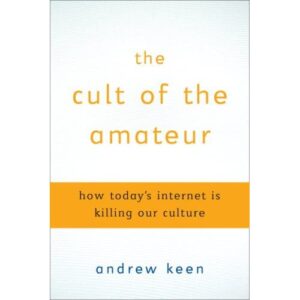Nielsen is changing it’s webranking system from counting page views to length of visit:
A leading online measurement service will scrap rankings based on the longtime industry yardstick of page views and begin tracking how long visitors spend at the sites.
The move by Nielsen/NetRatings, expected to be announced Tuesday, comes as online video and new technologies increasingly make page views less meaningful.
Interesting and probably more accurate, at least for already heavily visited sites. If you only have ten views but each of those are for an average of ten minutes, that doesn’t really make you better than the guy with 5000 views for around five minutes each.
It’s interesting to see as the two measurements would benefit sites differently. Number of visits are greater for sites that tend to update more often while length of visits would benifit sites with longer content that tend to not update as frequently. (UPDATE: Valleywag’s thoughts off a Computerworld article.)
But let’s take this handy measurement and see how Virginia blogs measure up. Taking the top ten posted by NLS back in April:
1. Not Larry Sabato—- 2,447 Visitors Per Day
2. Raising Kaine———-1,883 Visitors Per Day
3. BVBL————————-635 Visitors Per Day
4. Bearing Drift————–432 Visitors Per Day
5. Virginia Progressive—-330 Visitors Per Day
6. Bacon’s Rebellion———328 Visitors Per Day
7. 750 Volts——————–93 Visitors Per Day
8. The Ward View————85 Visitors Per Day
9. SLANTBlog——————67 Visitors Per Day
10. BYP—————————-42 Visitors Per Day
Length of visits (as of today):
1. BVBL ———————— 4:50 min/visit
2. Raising Kaine ————— 4:12 min/visit
3. Not Larry Sabato ———— 4:07 min/visit
4. The Ward View ————— 3:31 min/visit
5. Bacon’s Rebellion ———– 3:07 min/visit
6. Bearing Drift ————— 2:59 min/visit
7. Virginia Progressive ——– 1:16 min/visit
8. 750 Volts ——————- 1:15 min/visit
9. J’s Notes ——————- 0:41 min/visit
10. BYP ———————— 0:39 min/visit
I can’t find SLANTBlog’s SiteMeter link. You lose, Terry, so instead I listed myself. I average 61 unique visitors a day, so that should mean something!
NLS and BVBL swapped spots. The Ward View had the biggest jump of four spaces, from 8 to 4. Short of listing every single blog in the VAblogosphere, the whole thing still holds pretty even.
